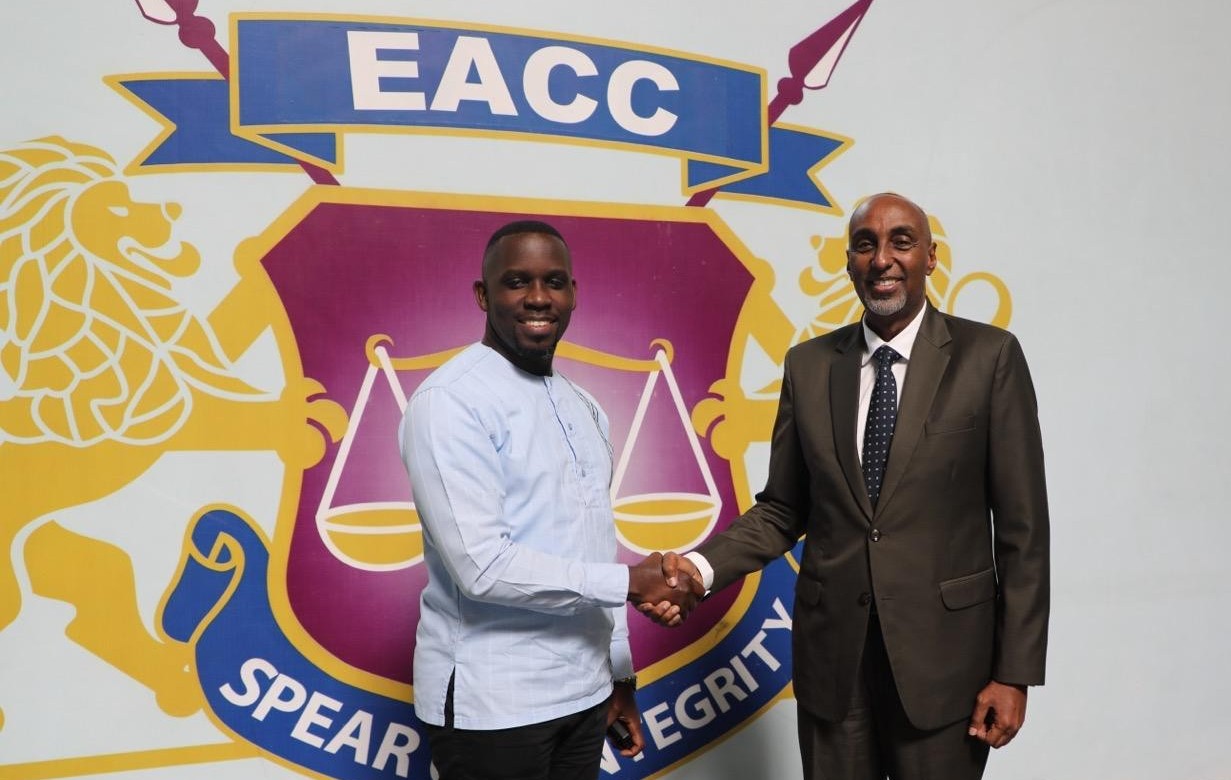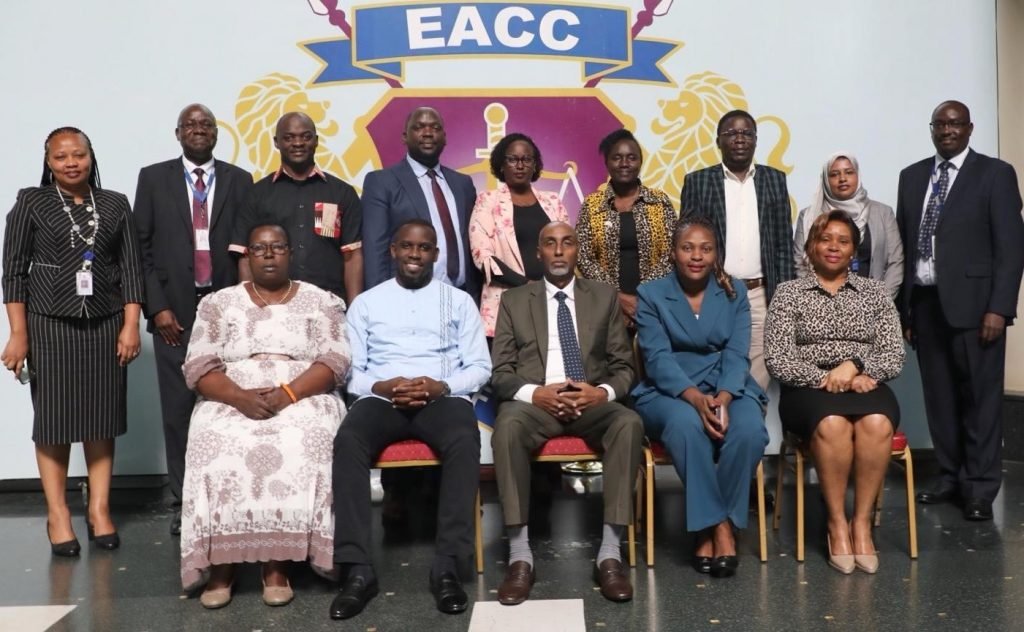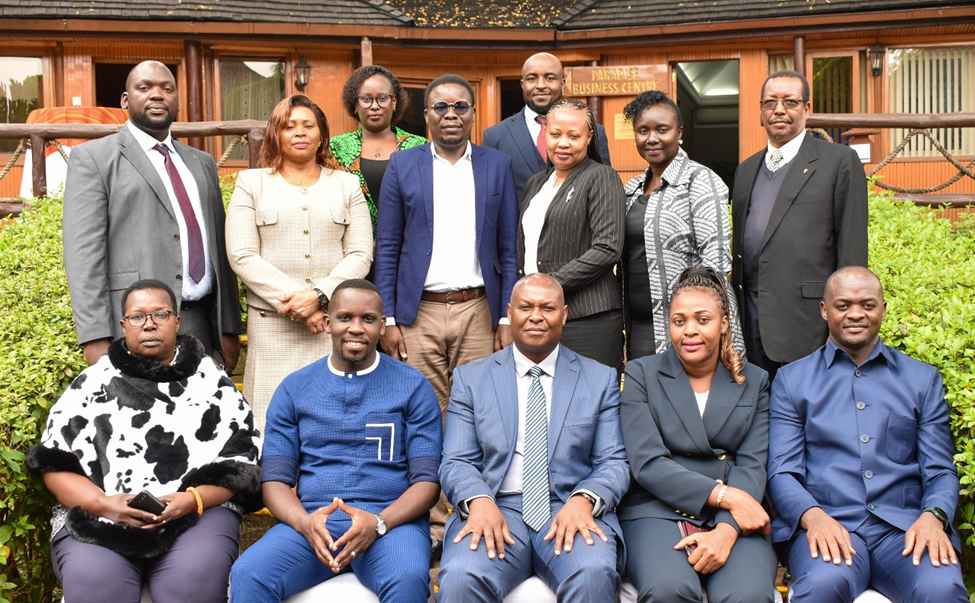Ugandan Legislators benefit from EACC’s Integrity Governance Initiative

19:12:2024: The Ethics and Anti-Corruption Commission (EACC) has, through its training wing, the National Integrity Academy (NIAca), finalized a one-week capacity-building program for a delegation of Members of Parliament (MPs) from Uganda.
The Executive Leadership and Integrity Training program equipped the MPs with the skills necessary to promote ethical practices and good governance in their legislative roles. The initiative served as a platform for African leaders to address governance challenges, share practical experiences, and develop actionable strategies. Key discussions centred on ethical leadership, anti-corruption frameworks, and fostering institutional integrity.
Speaking during the programme’s official opening, EACC’s Deputy Chief Executive Officer, Mr. Abdi Mohamud (pictured above with Uganda’s Leader of Opposition and head of the delegation, Hon. Joel Besekezi Ssenyonyi), underscored the critical role of ethical governance in public service.

“Ethics is the foundation upon which we build trust, respect, and strong relationships,” he said. Highlighting Kenya’s successes in asset recovery and the use of technology to combat corruption, he reaffirmed the Commission’s commitment to advancing ethical governance.
The program, held at Safaripark Hotel from December 2nd to 6th, 2024, also highlighted Kenya’s anti-corruption successes, especially EACC’s recovery of unexplained wealth, and strategies for enhancing regional cooperation towards a corruption-free East African Community.
Mr. Joel Besekezi Ssenyonyi, the Leader of the Opposition in Uganda and head of the delegation, acknowledged the corruption challenges in Uganda, citing reports that nearly half of public revenue is misappropriated. He stressed the importance of regional cooperation to combat corruption and emphasized the need for leaders to prioritize service delivery. “Leadership is not about power, it is about service and leaving a legacy of integrity,” he said.
EACC CEO Mr. Twalib Mbarak lauded the partnership between Kenya and Uganda and advocated for continued regional collaboration to enhance governance frameworks and build public trust.
“With a renewed focus on ethics, both nations can strengthen governance and foster accountability,” he said.
The training featured sessions on practical tools for embedding ethics in leadership, such as corruption risk assessments, systems reviews, and integrity testing. It also emphasized the importance of whistle-blower protection, robust anti-corruption policies, and strategies to recover unexplained wealth and enhance transparency.

Facilitators urged participants to “do the right thing even when no one is watching.” Personal accounts of navigating ethical dilemmas highlighted the value of collaboration, reflection, and open dialogue in leadership.
The Ugandan delegation recommended integrating ethics training as a standard practice in public institutions across East Africa. They suggested clear policies, regular audits, and mentorship programs to foster transparency and accountability.
At the program’s conclusion, EACC Chairperson Dr David Oginde awarded participants certificates. The initiative aligns with EACC’s mission to promote anti-corruption efforts and enhance regional ethical governance. Leaders shared personal accounts of navigating ethical dilemmas, emphasizing the value of collaboration, reflection, and open dialogue.

